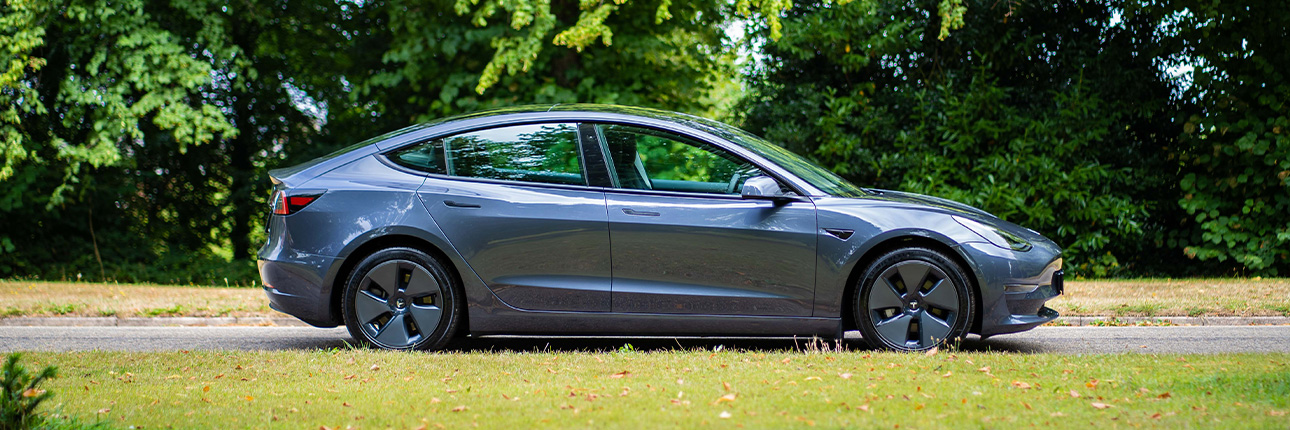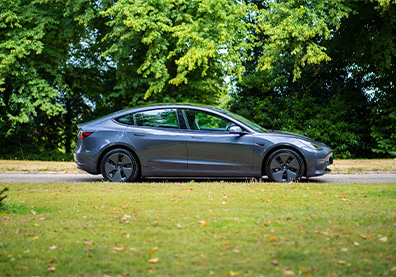We use cookies to make your experience better. To comply with the new e-Privacy directive, we need to ask for your consent to set the cookies. Learn more.


AI technology in cars
Artificial Intelligence (AI) has revolutionised many industries, and the automotive sector is no exception. In recent years, AI has made significant advancements in vehicles, transforming the way we drive and enhancing the overall driving experience. With the integration of AI technology in cars, vehicles have become safer, smarter, and more efficient.
The rise of AI in cars
One of the key drivers behind the rise of AI in automotive is the increasing demand for autonomous vehicles. AI-powered systems enable cars to perceive their surroundings, make decisions, and navigate without human intervention. This has paved the way for the development of self-driving cars, promising a future where commuting becomes more convenient and efficient.
Safety development
Furthermore, AI has enabled the automotive industry to implement advanced driver assistance systems (ADAS). These systems use AI algorithms to analyse real-time data from sensors and cameras, providing drivers with enhanced safety features such as lane departure warning, adaptive cruise control, and automatic emergency braking. By leveraging AI, cars can now detect potential hazards and react faster than human drivers, reducing the risk of accidents and saving lives.
One of the key AI-powered safety features is lane departure warning. Using cameras and AI algorithms, the system detects when a vehicle deviates from its lane without signalling and alerts the driver to take corrective action. This helps prevent accidents caused by unintentional lane drifting.
Another important safety feature is adaptive cruise control (ACC). ACC uses AI algorithms to maintain a safe distance from the vehicle ahead by automatically adjusting the car's speed. It takes into account factors such as traffic conditions and the speed of surrounding vehicles, ensuring a smooth and safe driving experience.
AI also plays a crucial role in automatic emergency braking (AEB) systems. Using sensors and AI algorithms, AEB can detect potential collisions and apply the brakes to prevent or minimize the impact. This feature has been proven to significantly reduce the severity of accidents and save lives.
Furthermore, AI-powered safety features are constantly evolving, with advancements in areas such as blind spot detection, forward collision warning, and pedestrian detection. These technologies leverage AI to provide drivers with real-time alerts and assistance, enhancing overall safety on the roads.
Infotainment
In addition to safety features, AI has also revolutionised infotainment systems in cars. Voice recognition technology powered by AI allows drivers to control various functions of the vehicle, such as navigation, music playback, and climate control, simply by using their voice. This hands-free operation enhances convenience and reduces distractions while driving. AI algorithms enable cars to understand and respond to voice commands, allowing drivers to control various functions without taking their hands off the steering wheel. Whether it's making a phone call, changing the radio station, or adjusting the temperature, voice recognition technology provides a convenient and safe way to interact with the car's infotainment system.
Furthermore, AI algorithms can analyse user preferences and behaviour to personalise the infotainment experience. For example, the system can learn the driver's music preferences and automatically create personalised playlists or suggest nearby restaurants based on previous choices. This level of personalisation enhances the driving experience and makes the car feel more tailored to the individual.
AI also enables advanced navigation systems in cars. By analysing real-time traffic data and historical patterns, AI algorithms can provide drivers with the most efficient routes, taking into account factors such as traffic congestion and road conditions. Additionally, AI can integrate with other smart devices and services, allowing drivers to seamlessly access information, such as weather updates or restaurant reviews, directly from the infotainment system.
Challenges and future outlook
While AI advancements in vehicles offer numerous benefits, they also come with their fair share of challenges and considerations.
One of the primary challenges is ensuring the reliability and safety of AI-powered systems. As cars become increasingly reliant on AI algorithms, it is crucial to establish robust cybersecurity measures to protect against potential threats and vulnerabilities.
Another challenge is addressing the ethical considerations surrounding autonomous vehicles. For example, AI algorithms need to make split-second decisions in emergency situations, such as choosing between two potential collisions. These ethical dilemmas raise questions about liability, responsibility, and the impact of AI on human lives.
Furthermore, there is a need to establish clear regulatory frameworks and standards for AI in vehicles. These frameworks should address issues such as data privacy, liability, and safety standards to ensure that AI technology is deployed responsibly and ethically.
Despite these challenges, the future outlook for AI in vehicles is promising. As technology continues to advance, we can expect even more sophisticated AI-driven features in vehicles, further improving safety, efficiency, and the overall driving experience. With ongoing research and development, the automotive industry is poised to embrace the full potential of AI, transforming the way we commute and interact with our vehicles.
